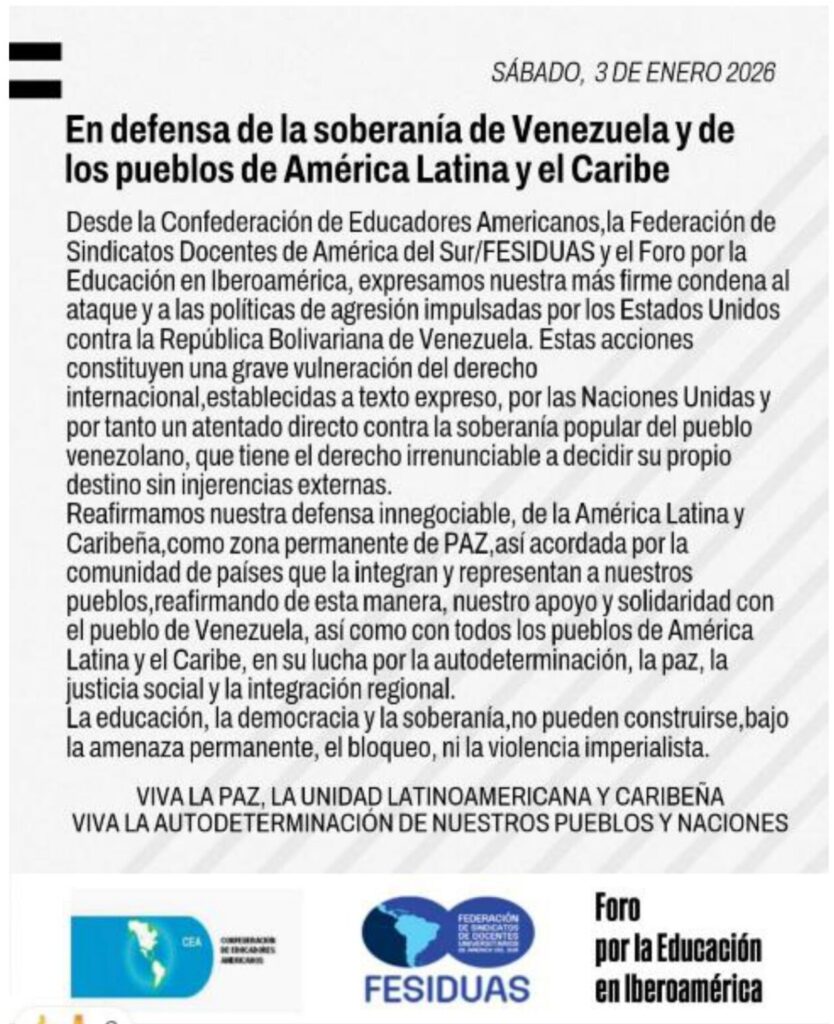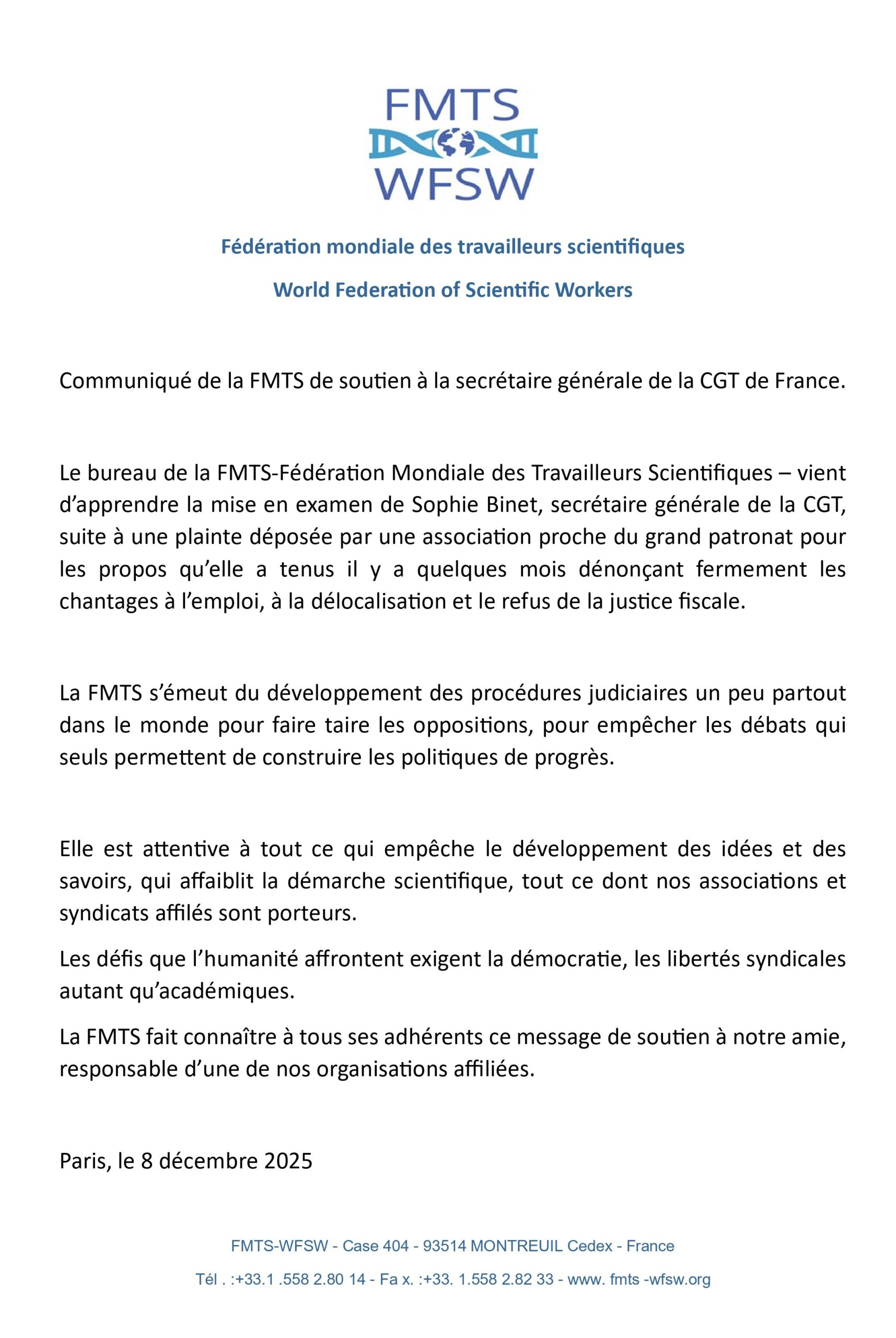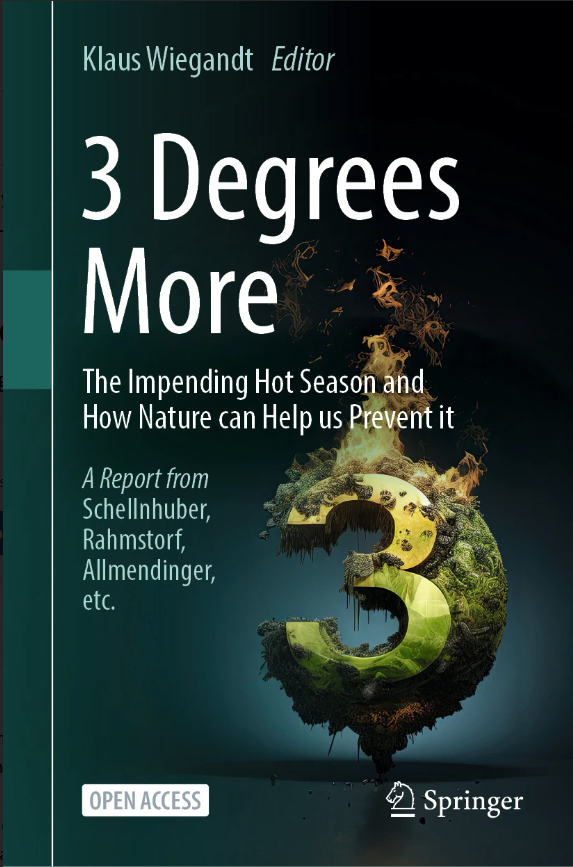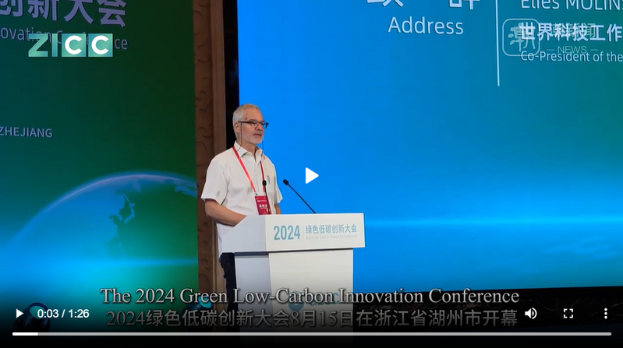Break out Afica of the scientific divide
Speech delivered by Professor Bonaventure MVE-ONDO at the symposium: Science and Sustainable Development for Africa and Africa.
Mr. Presid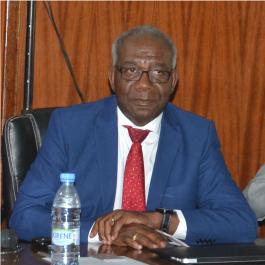 ent of the World Federation of Scientific Workers
ent of the World Federation of Scientific Workers
Mr. Secretary General of the Autonomous Union of Higher Learning
Mr. Secretary General of the Unitary and Democratic Union of Teachers of Senegal
Mr. Minister of Higher Learning
Mr. Rector
Honorable Ladies and Gentlemen of different ranks and titles
Teacher-researchers, dear colleagues,
Ladies and Gentlemen,
Dear friends,
First of all, I would like to thank sincerely the organizers of this banquet of the scientific community, namely the President Jean-Paul Lainé, the Secretary-General of the SAES Mr. Malick Fall, and the Secretary-General of the SUDES, Mr. Amadou Diaouné for inviting me to participate in your meetings. It is an infinite honor for me to speak before this assembly of workers of science on a subject of capital importance for the future not only of Africa but also of the world.
My thanks also go to my Senegalese family, which is the entire university community of this country which found the way to enrich me daily for 11 years with its passion for knowledge. I am going to entrust you with a secret, the secret that decided me to accept your invitation. I like to come to Dakaret, particularly here to the University because the University is considered here in its most demanding sense. That is to say this university is the primordial place in which it is important to raise judicious questions, to put forward the boldest hypotheses, to open unprecedented paths for thought, to find relevant and functional solutions, all of this with freedom, seriousness and the search for excellence in mind. The University is meaningful only if it conducts truly useful intellectual work. This is why the University is irreplaceable.
Ladies and gentlemen,
The subject that I was asked to deal with before you is very complex, and basically involves two major questions. The first one: what is the state of science in Africa? The second one: how, in what sense and with what new means, can we now try to reduce the scientific divide to make science in Africa more useful, more committed and more critical for our development and for that of the world?
Before answering these questions I would first like to apologize in advance. For the needs of my demonstration and due to the brevity of this exercise, I will have to use a lapidary style with no nuances. My purpose is to share my convictions with you.
To answer the first question, about the state of science in Africa, let us start by describing the context. The question of the state of modern science in Africa takes on its meaning and even its form only if we place it in the sense of history, namely the ideological and political context in which it arose. Namely, the colonial order.
Thus, as you know, the appearance of modern science in Africa is the consequence of the “civilizing mission”. This mission legitimized and strengthened the imperial and colonialist project. This is why from the very beginning science was considered only as “the white man’s thing”, something exterior, and for which Africa was only an object of studies. And even when this colonial science contributed to the creation of new scientific disciplines like ethnology, linguistics, and anthropology, the purpose was not to develop new axioms or even a new epistemology of knowledge able to take into account the genius of Africa. The purpose was rather to help Westernize the world.
Thus, from the beginning, in its nature and purpose, this science, even when considered as spoils of war by our newly independent countries, was considered as something extraneous in its posture, practices, topics or objects of research, and also in the mobilization of its resources and the use of its results.
The situation is even worse in the human and social sciences because the impression that remains is that these sciences are blind to the realities of our societies and their future. Several things prove this: we are confronted with works of a monographic type, themselves marked by academic and scientific nationalisms. The consequence of the situation is the inability of African academics to propose syntheses in their fields elaborated from Africa. Another salient characteristic of the situation: a science of a peripheral type, that is to say with no clear policy or strategy. We try to train scientists, researchers, but we do not know why, for what purpose or even for what challenges.
This is why the small quantity of resources devoted to this sector has not always been able to reach significant and visible results.
The science now practiced in Africa is above all a science of a subaltern level, whose role is to gather raw materials which will then be processed and transformed elsewhere. But it is also a science that consumes concepts, paradigms, themes and products elaborated elsewhere. This science is not able to question supposed or implicit certainties, and is not able to take into account the truly present reality in Africa.
One of these suppose certainties, which has not always been criticized in our continent, is the concept of the society of knowledge. As you know, this society of knowledge not only does not really belong to our continent, but in reality creates new forms of inequality and exclusion. Worse, this concept has created a new inegalitarian world order in the production and sharing of the results of the science, which in another context I called “the scientific divide”.
This new world order goes against the social contract based on redistribution and solidarity which Europe, the United States of America and the rest of the world committed themselves to establishing and supporting immediately after World War II, in particular with the creation of the United Nations Organization for Education, Science, and Culture (UNESCO). We thus understand why the paradigm of development, which was based on access to knowledge and thus on the claim that economic growth and technical progress are the drivers of development, did not make it possible to reduce definitively this alleged inequality.
Today, more than ever, inequality has returned. To justify inequality, some mention the complexity of the world and present this new form of exclusion as a mere inconvenience in the profound evolution of the world, and therefore just as a simple « error »1. Others consider this inequality to be a sort of necessary injustice2. In reality, all those who take these postions are “beating around the bush” and refuse to see reality. They focus their intelligence on secondary matters and remain silent about what is essential. In their eyes, the world is doing fine, the scientific divide3 is a sort of collateral damage of the dominant model of development. But we all know that this model is essentially man-made and ecocidal. We now face a model of development that serves an economy which, to quote the title of a book by Dejours4, is based on the worldwide “normalization” of injustice.
Another consequence of the extrinsic character of science in Africa: the deafening silence of our continent concerning the answers that the world community seeks to provide to the great questions of our time, whether it is AIDS, hemorrhagic fever, malaria, global warming, but also the great demographic transformation that our continent has been undergoing for decades. And there is also the financing of Africa’s economy!
Everything is happening as if we had decided to surrender, as if we had agreed to endure and no longer think by ourselves. We have become the consumers of the science of others. We have become the consumers of their ready-to-wear and ready-to-live products. Now the absolute evil for every human being and for every society is to stop thinking, to cease to determine one’s own priorities, to fail to take into account one’s real problems.
The greatest proof of this abandonment and refusal to think can be found in the very framework of scientific creativity, the production of patents. According to the report of the World Economic Forum of 20145 the production of patents in Africa is 2.6% of worldwide production, whereas the leading continent is Europe (35%), then North America (32%) and China (20%). But the percentage indicating African production is deceptive. If we subtract the production of four countries – South Africa, Egypt, Tunisia, Morocco – the production of the rest of Africa drops to 0.3%, in other words nothing. This very strikingly illustrates the absence of Africa in the creation of knowledge. And this holds true even in those sectors which are important for Africa’s development, for example energies and biodiversity!
What is the use of our having universities and research centers if those institutions have no impact on our development6? Indeed, how can we develop our continent if we remain passive consumers and not even “copiers”? How can we change the order of things when the science that we teach in our universities has no connection with our economies, our agriculture, and our eco-system? How can we develop with an industry which itself is centered on the outside, which is nothing but the perpetuation of a colonial economy of trading posts?
Ladies and gentlemen, we must put all these questions not only to our politicians, but also – and maybe first and foremost – to ourselves. To be sure, these are tough questions, but they are legitimate. And we must try to find answers at a time when the world seems to be interested in Africa. I am referring to the recent summit of the African Union and the European Union in Abidjan, the latest China-Africa meeting. But I am also referring to what is on the horizon for tomorrow, and what is the pact on education and youth. How can we overcome the scientific divide? What can we really do?
Here and now I would like to propose to you three paths for thought and three types of actions addressed as much to our States as to trade unions, which are national and international actors, and to a federation like yours, and of course to each one of us, university authorities, teachers and researchers.
The first path is to re-center science in Africa. More than ever, our continent must be the object and subject science. Africa must produce science. A basic science, to be sure, but also science aimed at meeting Africa’s challenges, the science useful in rebuilding our economies and our societies. A creative science, the science that files patents and that also takes into account the problems of the world. This requires improved quality of our research institutions, our educational systems, and requires promoting collaboration in research between the national and international industrial world and universities. We must engage in performance pacts in our universities, in win-win contracts between universities, the State, and private partners. But given current funding of higher learning in our countries, this is impossible without a new funding initiative for this sector.
And here we have the aim of the second path, which is complementary to the first one. The creation of an innovative funding mechanism for our educational and research systems, which would be added to existing efforts, is now indispensable. For many years our States have conducted policies seeking to increase their resources (public and private) to support higher learning and research. These policies are immense when we consider their budgets as a whole, but they are insufficient if we truly want to drive development. As courageous as they may be, as Mr. Minister of Higher Learning, her Excellency Mary Teuw Niane, these resources do not measure up to our numerous and great challenges. So we must imagine something else. We must imagine a sort of special tax, on the model of the Tobin tax, a tax that could be based on imports in maritime transportation of all products that contribute to the destructuration of local production and to the non-creation of jobs for youth (for example: imported used goods, imported foods, etc.). We know that in fact these imported goods worsen the inequalities in Africa’s productive forces by comparison to those of other continents. Why not use these imported secondhand goods as a lever?
You understand, the purpose of such a tax is to obtain for our States, our governments, civil society, higher learning and the economy, new resources in addition to usual funding, so as to improve, in a sustainable and substantial manner, training, by investing heavily in infrastructures and quality in terms of professionalisation, employability and innovation.
This tax, of which Senegal could be justified in providing leadership and advocacy within international African, European, and worldwide organizations, should also make it possible to encourage entrepreneurship among our young academics and scientists, and to consolidate growth of productive sectors. The tax therefore does not seek, as some would have us believe, to limit the opening of Africa to world trade, but rather seeks to guarantee sustainably Africa’s economic and social security and to enhance its growth.
The idea of this tax, dear friends, occurred to me when reading two major economic documents: on the one hand, Report 2012 of the IMF on the economic prospects of Sub-Saharan Africa, which recommended “preserving growth”, and the report entitled “Economic Prospects in Africa for 2014” of the African Development Bank, the OECD and the UNDP.
The search for means must not blind us to what is essential. In order to reduce the scientific divide as much as possible, it is important that higher education move out of its ghetto and become more visible and effective. This is the aim of our third path.
So as you know, true university teaching is not content with only helping to shape the student’s personality in its multiple cognitive, emotional, moral and social dimension. University teaching must above all, and even more, place students and young researchers in such a condition that they produce new knowledge, that they contribute to the advancement of their disciplines and make these disciplines able to react to the constant changes undergone by the structure of knowledge in our societies. In our universities on the whole the teaching staff is essentially composed of young and underqualified doctors, with very few teachers holding a full professor rank. The number of teachers and universities, moreover, is insufficient. For example, how can a federation and trade unions like yours help stimulate new dynamics?
A federation like yours is not a neutral structure or a mere framework for putting forward demands. For me, it is first of all a framework for directing and influencing science policies. In a certain way, a federation like yours is a worldwide scientific space making it possible to create durable relations and actions that benefit the actors and the very beneficiaries of science. This is a space of scientific solidarity which must help universities and research centers to engage in plural debates in Africa and in the world and to move away from certainties. Your structures could commit themselves, with our States and governments, to a policy of strategic intelligence, and not only for a social policy of means. Indeed, more than ever, sciences must play their role as observatories, watchdogs and actors in the development and transformation of our societies.
But in order to reach these objectives, your federation and your trade unions must move away from beaten paths with new and more visible actions for our continent. For my part, I see three types of actions, all equally urgent.
The first type of these actions must be crosscutting and interdisciplinary. These would be interdisciplinary and international actions. For example, the international science week which includes presentations by teachers, exchanges between students, all through the Internet with different versions in the main language zones, and about topics relevant to all. These actions could be organized with other players like the Agence Universitaire de la Francophonie and UNESCO, for example, but also with universities. Your federation and your trade unions could also play the role of platforms for exchanges and the annual showcase for the life of sciences in the world. Such an initiative could encourage young people to become interested in a sector which too many young people tend to avoid because it doesn’t pay well.
For the second type of actions, the federation and the trade unions could generate and help to support coordinated research initiatives between several doctoral teams, bringing together as many as five universities, including at least two from the south, to work on topics which are now transversal like migrations the question of identities and living-together in pluricultural spaces, etc. In all cases the purpose would be to get mobilized in order to facilitate the mobility of students, teachers and researchers, through scholarships and subsidies for studies, as well as teaching and research missions. But support structures and scientific councils could also play a role for enrolling students in thesis programs, as we know that students have a desire and will to do so.
The last type of actions could consist in ensuring great visibility to the best work of our doctoral candidates and young researchers by putting them online. This selection could be accompanied by a prize, the Prize of the Young Scientific Worker. This would be a symbolic prize, but also a very important one which would guarantee the visibility of its beneficiaries.
Your Federation must more than ever be a network of trade unions which not only mobilizes to improve the living and working conditions of its members, but must also be a network of actors serving the development of science and therefore of the future of the continent and the world. Functioning in a network means not only enabling researchers to exchange their knowledge and skills, but also improving their training capacities and their capacities to produce and disseminate knowledge.
Ladies and gentlemen,
In a certain way, the mission of all of us, States, trade unions, and a federation like yours, is something like that of Prometheus, whose legend is an integral part of the spirit of the Enlightenment, which is the foundation of modern science. And this mission is also our duty. For me, it is based on a strong conviction. Life is not given, it is to be conquered, produced and reproduced in the scientific work that we have to do, and this conquest, in the words of Aimé Césaire, is “never finished”, but just always “in the process of enlightening”7.
Prometheus, by bringing to mankind the fire of knowledge, invites us to take on our responsibility as scientific workers for the future of the world. Indeed, and I will conclude here, as my friend Felwin Sarr puts it so well, it is a question that we now can no longer avoid and which concerns all of us, teachers, researchers, institutions and politicians. It is the following question: “will my act reproduce the conditions of iniquity, domination and injustice, or will it make this world more fruitful, open and exhilarating?”
Thank you for your kind attention.


